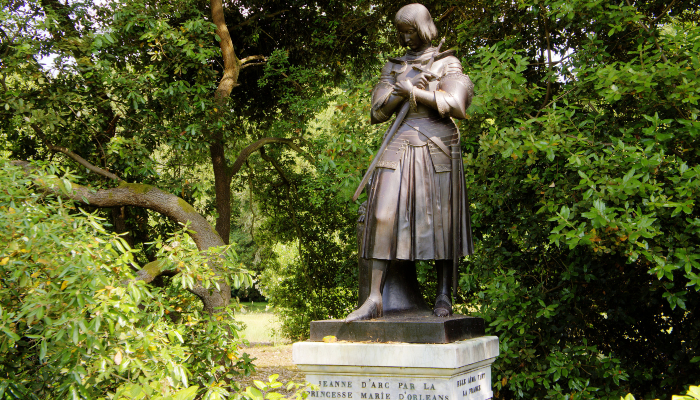Evolution
Where can I find information about evolution?
(Years 7-10)

Image: Darwin Finch (49214270717) by kuhnmi on Wikimedia Commons.
Entry last updated: 21/07/25
Introduction
Evolution is a scientific theory used by biologists to explain how living things have changed over a long period of time. Charles Darwin, a British naturalist, geologist and biologist was the first to introduce the theory of evolution in his book On the Origin of Species published in 1858.
What is evolution?
Charles Darwin believed that all species of life have descended over time from common ancestors. The websites below have more about the theory of evolution, types of evolution, evidence of evolution, evolution clarification and other related information on evolution.
Britannica School is part of EPIC, a collection of reliable databases covering lots of different topics. It’s put together especially for New Zealand school students and helps to answer questions like this. You may need to log in.
Select the middle level and enter the keyword 'evolution' into the search box.
Choose the link evolution (scientific theory) under Recommended articles. Here you can find out more about the origin of life, and how natural selection directs evolution.
Tips: To get to the EPIC resources you will need a password from your school librarian first. Or you can chat with one of our AnyQuestions librarians and they will help you online. Some EPIC databases may also be available through your public library.
Britannica School has lots of articles about different types of evolution, and you can search for these using different keywords. For example, if you want to find out more about the origin of humans, or human evolution, follow this pathway:
Choose the middle level.
Enter the keywords 'human origins' into the search box.
Choose the link to human origins under the Recommended articles heading.
Remember to explore the images, videos and related articles to find out more about this topic.
Tips: Search words, or keywords, are the most important words in our question. Usually it’s better to leave out small words like ‘the’, ‘a’ and ‘of’ and just choose the main ones, eg 'human origins'. We can always change our keywords or add more if we need to.
Science in Context is another EPIC database with information about hundreds of important science topics such as evolution. You may need to log in.
Find Browse Topics along the top of the page.
From the list, choose your topic. There are lots of useful topics to choose from, like Evolution, Human Evolution, Natural Selection, or Darwin, Charles.
Tips: Many web pages have links to further information or to other recommended sites. Following these links is a great way to find out more.
This website is great for science topics for New Zealand students. It has articles, activities and videos and lots of pictures.
To find information about evolution, choose the Concepts tab along the top of the page.
The concepts are in alphabetical order so look down the page and choose Evolution.
You can filter the results by changing what type you want to look at, for example if you only want videos choose the Video option.
You can also filter by your year level by choosing either early years, primary or secondary.
Tips: Websites that have .org or .net in the address can have good information, but you need to assess how reliable it is. Check the About us link on the website, if you can find one. That can tell you what the organisation’s mission and values are. We like Science Learning Hub because it was put together by the University of Waikato and Curious Minds (NZ).
This site is run by New Zealand science teachers, and the content is aligned to NCEA. It also includes some junior science material. There are resources like flash cards to help you revise and prepare for exams as well.
Look under the Biology tab along the top of the page and then choose your level, for example Level 3 Biology.
Then you can choose the topic you are studying, like Human Evolution.
Tips: Websites that have .com or .co in the address can have good information, but you need to assess how reliable it is. Check the About us link on the website, which is under What's new? on this website. That can tell you what the company’s mission and values are.
Khan Academy is a free to use site filled with information and educational videos on a range of topics in science, math, history, computers and more. Unfortunately Khan Academy does not work in Internet Explorer.
You can close any pop ups or banners that ask for a donation or to sign up, because this website is free.
Enter the keyword 'evolution' into the search box.
You can change your results using the filters down the side of the page. For example, if you just want to look at videos, tick the Video box.
Then you can choose which video you want to watch, like Evolution.
Tips: Websites that have .org or .net in the address can have good information, but you need to assess how reliable it is. Check the About us link on the website, if you can find one. That can tell you what the organisation’s mission and values are.
Charles Darwin
Charles Robert Darwin's theory of evolution became the foundation for other evolutionary studies. The websites below are about his life and his process of discovery.
As well as biographies, this EPIC resource has video and audio recordings and images of past and present famous people in various fields. You may need to log in.
Use 'Charles Darwin' as your keywords and enter those into the search box.
The Overview on the Charles Darwin person guide also has the story of the Voyage of the Beagle.
Tips: To get to the EPIC resources you will need a password from your school librarian first. Or you can chat with one of our AnyQuestions librarians and they will help you online. Some EPIC databases may also be available through your public library.
Britannica School from EPIC has a special section on biographies of famous people. You can search using the biographies link or use the search feature. You may need to log in.
Choose the Middle level.
Enter they keywords 'Charles Darwin' into the search box.
Choose the recommended article called Charles Darwin ((1809-1882) British naturalist).
Remember to explore the Related Resources, Images and Videos listed on this page to know more about this topic.
Books
Your school and local library will have many books about Charles Darwin and evolution. Here are some suggested titles:
Evolution, How We Came to Be by Ben Martynoga.
100 facts : evolution by Sally Morgan.
Charles Darwin's On the origin of species by Anna Brett.
Charles Darwin's Voyages of Discovery by Izzi Howell.
All about Evolution by Robert M L Winston.
Evolution : join us on an exhilarating journey from the origins of life to the present day! by Sarah Darwin and Eva-Maria Sadowski.
SCIS no: 1918916



